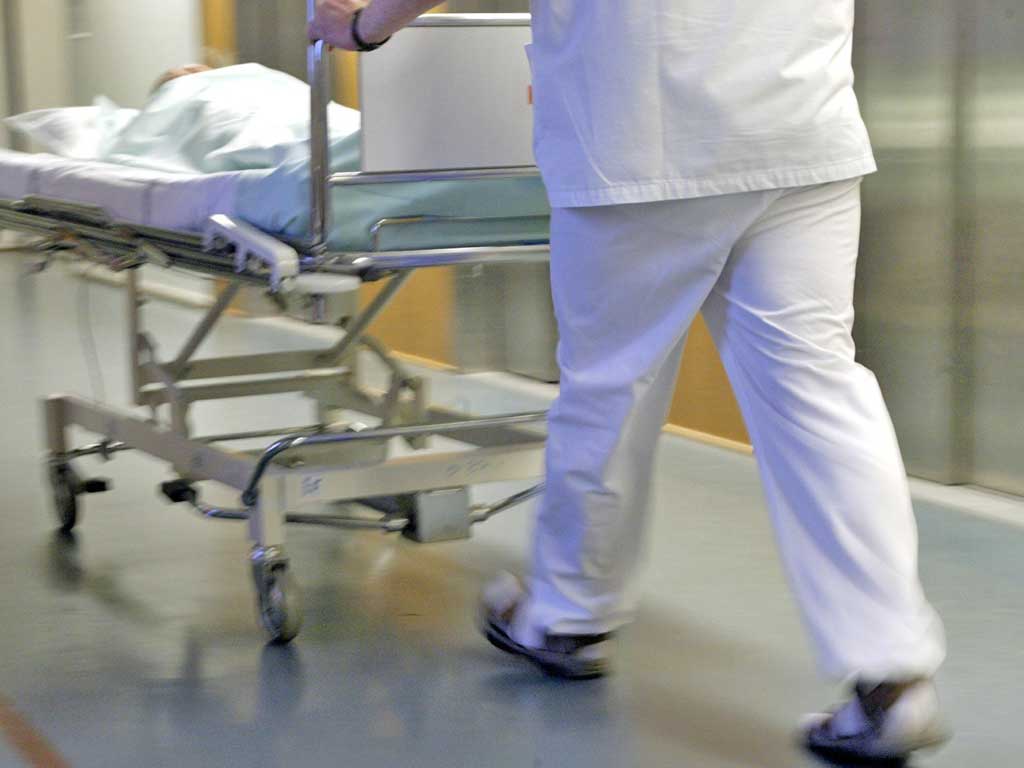The third highest cause of death in the United States is mistakes by medical staff
'There’s a big problem with blaming people. It’s stops people learning because they start being defensive'

Mistakes by medical staff have been ranked as the third leading cause of death in the United States in a new study.
Researchers from Johns Hopkins University School of Medicine estimated that more than 250,000 people a year died as a result of an error by the people treating them – behind heart disease (611,000 deaths) and cancer (585,000) on the list of top causes of death, but significantly ahead of the 149,000 who die from chronic respiratory disease.
Last year British Health Secretary Jeremy Hunt described avoidable deaths in hospitals as the “biggest scandal in global healthcare”. It is estimated that 3.6 per cent of deaths in hospitals in England are avoidable, equating to about 150 deaths a week.
However the US researchers and a British academic who has studied medical errors said many of the problems were the result of complex systems rather than mistakes by individuals.
Professor Martin Makary, of the Johns Hopkins research team, said official figures in the US had not revealed the extent of the problem because the way they were drawn up was more about charging medical fees than trying to find out what was killing people.
“Incidence rates for deaths directly attributable to medical care gone awry haven’t been recognized in any standardized method for collecting national statistics,” he said.
“The medical coding system was designed to maximize billing for physician services, not to collect national health statistics, as it is currently being used.”
The US system dates back to 1949 when Professor Makary said it was “under-recognized that diagnostic errors, medical mistakes and the absence of safety nets could result in someone's death”.
“Because of that, medical errors were unintentionally excluded from national health statistics,” he added.
Writing in the BMJ medical journal, the researchers said they had analysed death rates in the US between 2000 and 2008.
They then calculated that 251,454 people would have died as a result of a medical error out of 35,416,020 hospital visits in 2013. That represented 9.5 per cent of the total number of annual deaths in the US.
The researchers stressed that most medical errors were not caused by bad doctors and reporting an error should not automatically result in punishment or legal action.
Instead, they said most were the result of systemic problems, such as poorly coordinated care, fragmented insurance networks or the lack of proper protocols.
“Top-ranked causes of death as reported by the US Centres for Disease Control and Prevention inform our country’s research funding and public health priorities," Professor Makary said.
“Right now, cancer and heart disease get a ton of attention, but since medical errors don't appear on the list, the problem doesn’t get the funding and attention it deserves.
“Developing consensus protocols that streamline the delivery of medicine and reduce variability can improve quality and lower costs in health care.
“More research on preventing medical errors from occurring is needed to address the problem.”
Professor Justin Waring, of Nottingham University Business School, who has studied how to control medical errors, echoed the message that mistakes were often not the fault of a single person.
Improving procedures could help reduce the number of mistakes. One such success story, he said, had been the decision by the World Health Organisation in 2008 to recommend the use of a surgical checklist based on the one used by pilots before take-off.
People should also bear in mind the working conditions of medical staff if mistakes were made, Professor Waring stressed.
“A pilot who’s constantly being interrupted, whose wing is half missing and who has not got enough fuel – he’s a hero if he lands the plane," he said. “That’s what doctors do day-in, day-out. They are flying planes that are falling to bits."
And while it was important to deal with incompetent doctors and catch the vary rare number of people like mass murderer Dr Harold Shipman, there was a "very real risk" that the rise of a blame culture would damage the NHS, Professor Waring warned.
“There’s a big problem with blaming people," he said. "It’s stops people learning because they start being defensive. If you have a very defensive, legal culture, people don’t talke about and share their experiences about when it goes wrong.”
A UK Department of Health spokesperson said: “We want the NHS to be the safest healthcare system in the world and we are committed to understanding more about avoidable mortality, which as this study highlights, is a problem around the world.
"We are supporting staff to speak up when things go wrong so we ensure lessons are learned, mistakes are not repeated and the NHS can provide safer seven-day care for all patients."
Join our commenting forum
Join thought-provoking conversations, follow other Independent readers and see their replies
Comments